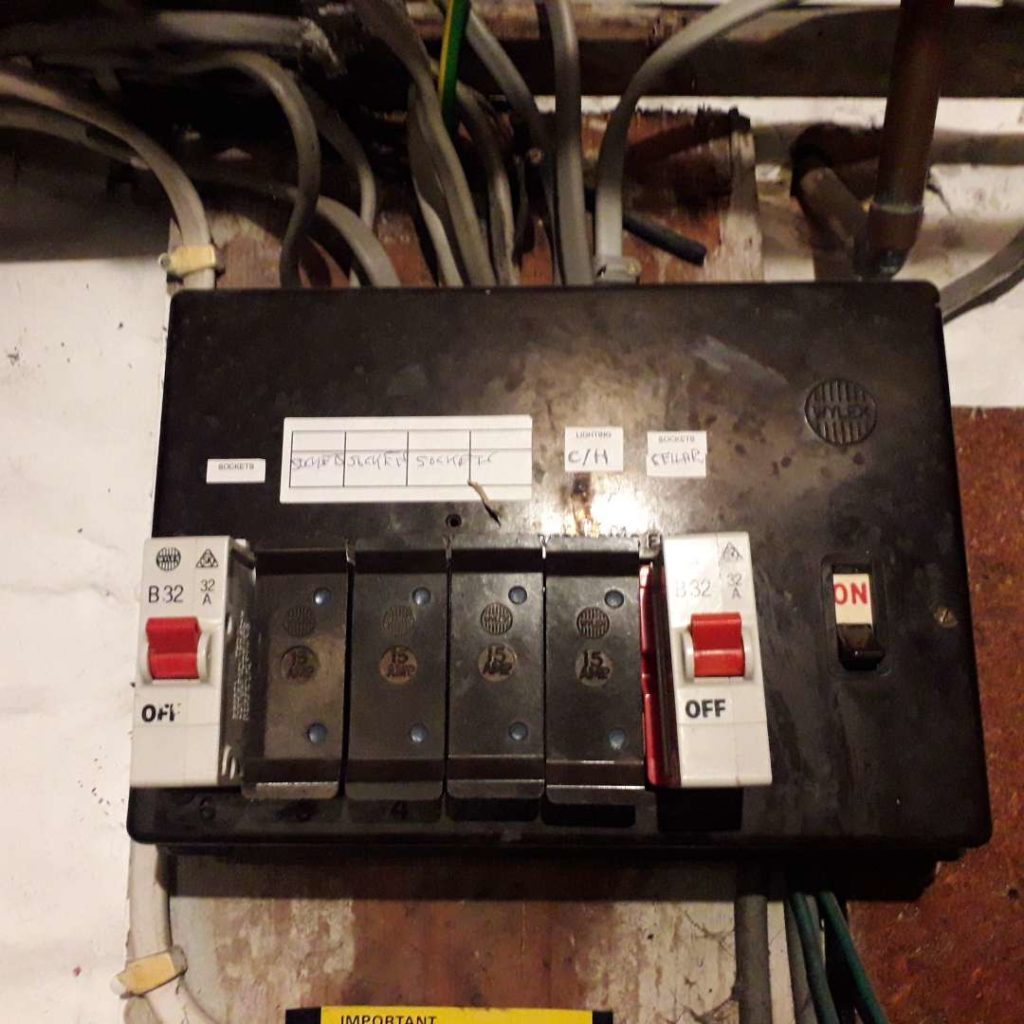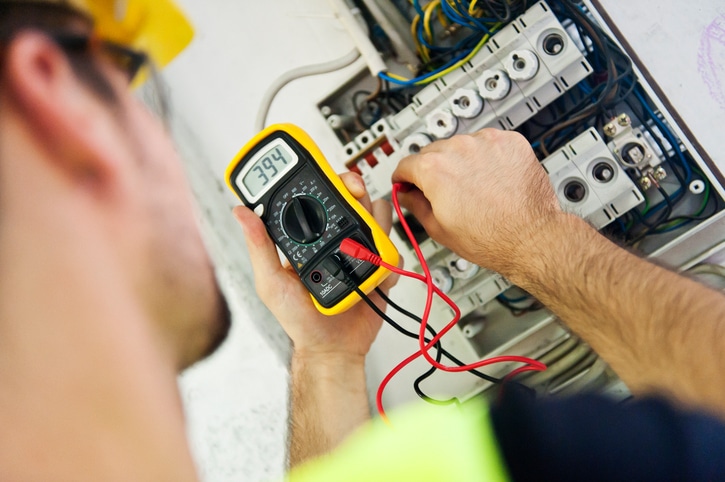Any home in the UK that has electrical wiring will have a consumer unit, although you may sometimes hear this being referred to as the fuse box. It is a major component in the electrical network, and all power lines within the home come from it.
Since it holds such an important job, it is of course, essential that it is functioning and safe; for this reason, many people pose the question of how often a consumer unit should be checked.
In this article, we are going to be looking at when and how you should check your consumer unit and some of the dangers that not doing so can cause.
How Often Should Your Consumer Unit Be Checked?
You should always be mindful of your consumer unit and report any problems to a qualified electrician. However, at an absolute maximum, a domestic consumer unit should be checked every ten years. You might decide to do it more frequently, however.
If you are buying or selling a property, the mortgage provider will request that you have the unit checked; otherwise, the sale will not be able to be completed.
If you are renting a property to tenants, the unit should be checked at least every five years. But if your tenants move out and new ones are due to move in, you should take this opportunity to inspect the unit again to ensure it is safe for those moving in.
When Should I Replace My Consumer Unit?
If your consumer unit is not defective, you do not need to replace it. However, some older units do not have an RCD – this is an essential component of the fuse box and breaks the electrical current in the case of an overload. Without it, there is a severe risk of an electrical fire, shock and potential loss of life.
Furthermore, plastic consumer units, whilst still common around the country, are not considered to be as safe as the metal or metal-clad units that are now being installed. Your plastic unit may be functioning well, but you might consider upgrading it to a metal unit if you wish to be safer.
The main reason that metal is best is that if there was an electrical fire within the unit, it would not spread as quickly if the event occurred in a plastic one.
Who Can Change My Unit?
Even if you feel confident that you know what you are doing, unless you’re a fully certified electrician, you should not attempt to change the unit yourself. Doing so puts you at risk of serious harm.
When it is time to upgrade your unit, you must contact a qualified electrician to complete the job. If you do not, the work will not qualify with building regulations.
Once the work has been carried out, your electrician will provide you with various certificates and copies of test results for your records. You will also receive a certificate from building regulations after the work is completed.
How To Identify An Old Consumer Unit
If you are buying a new property, it is likely that you will want to know whether the consumer unit is out of date and in need of an upgrade. In this case, there are certain things you can look for to determine the age of the unit.
Of course, bringing in a qualified electrician is the best way to check this, but you may wish to take a look for yourself first.
Older consumer units were not made from the same materials; frequently, bakelite, and this is not suitable nor used in modern fuse boxes. Whilst it is not illegal to have an old fuse box in your home, it is advisable to upgrade it.
Newer units will usually have a plain grey or white casing and a row of switches and a red isolation switch. Each of the other switches will be black, and these are linked to each of the electrical circuits in the house. Your newer consumer unit will also have at least two RCDs.
If you are concerned that your unit may be out of date, you should look for the following signs:
- A cabinet made from bakelite or a light grade metal.
- No RCD protection – on a modern model, there will be a test button, usually marked with a ‘T’, older models will lack this.
- Metal pin connectors – these are pushed into the board.
- Some very old units may have a wooden back, these typically date back as far as the ’50s and will indeed need to be replaced.
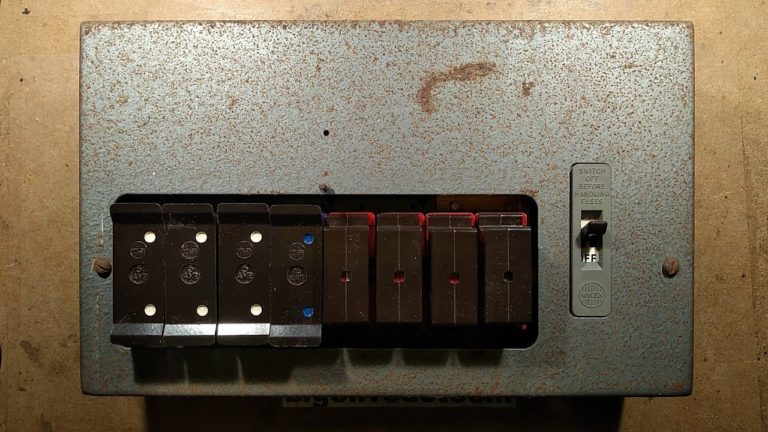
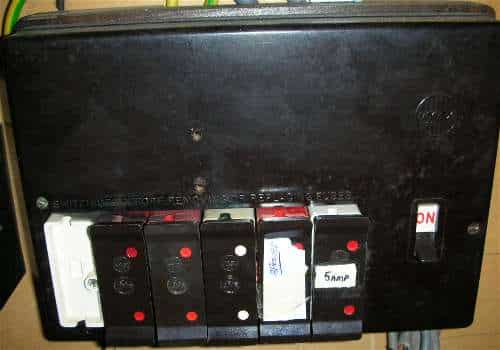
What Are The Dangers Of An Old Consumer Unit?
One of the most apparent dangers of an old consumer unit is, as we have discussed, the lack of an RCD. These residual current devices can mean the difference between the safe use of the fuse box and a potentially life-threatening situation.
An older unit may also have exposed wires and cables; this is another situation where an electric shock is a very real threat. If you do notice that there are any wires like this, you must call in a professional to handle the situation.
Some of these out of date units may also be fitted with wiring that is not up to the job. In some cases, electricians have reported attending call-outs to find older fuse boxes with such dangerous wiring that they were surprised anyone wasn’t injured or even killed.
While modern units can have their issues, older ones are far more likely to suffer from frequent power trips. If you notice that this has become an occurrence in your home then it is once again, important that you enlist the help of a qualified professional.
Tips For Monitoring Your Consumer Unit
It is imperative to remember that any electrical work should always be carried out by a trained professional who knows what they are doing. However, unless you have a live-in electrician, you must carry out some minor checks by yourself.
If you are at all worried about your consumer unit, we have put together some handy tips to make sure that you are safe.
Plastic Units
Plastic units are known to be less resistant to fire, purely because of the nature of the material. In some cases, you may notice that there is thermal damage to the plastic casing of your unit, and this could mean that things are overheating.
You should regularly check the condition of the unit and look for signs of possible damage. Aside from thermal damage, you might also notice a crackling sound or even the smell of burning. If you notice any of these things, it is vital that you contact an electrician straight away. Do not leave it for another day, this situation should be seen as an emergency.
Power Tripping
If the power in your home is tripping regularly then you are safe to turn it back on. However, since it is a regular occurrence, this would suggest that there is an underlying issue and this should be looked over by an electrician.
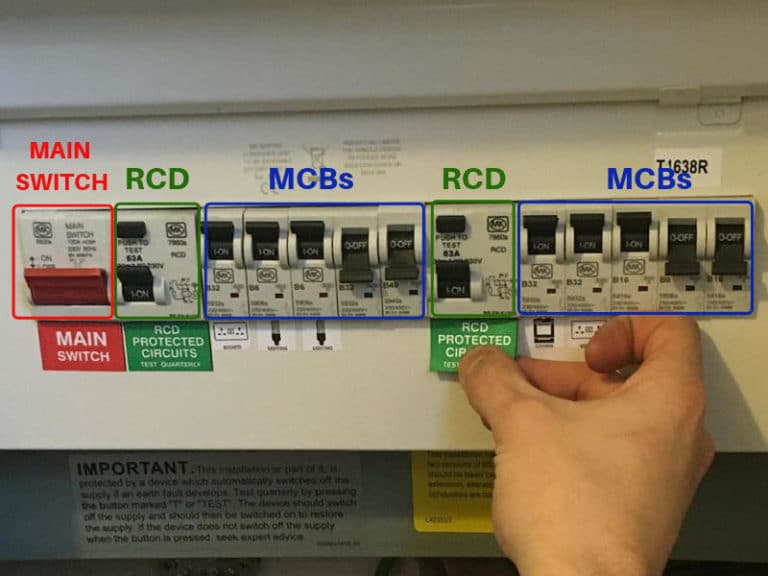
Regular Visual Checks
Whilst you won’t be able to perform any serious work on your unit, it is advisable to visually check it as often as possible. It is a good idea to choose a date each month and simply look at your fuse box to check for exposed wiring or any other potential risks.
If you do see anything that gives you cause for concern, be sure to contact your electrician who can further diagnose and fix any issues.
Test The RCD
As we mentioned earlier, in modern units there will be a test button which can be used to check that the RCD function is working well. If it is not, you could be at risk so it is important to use the test feature at least every three months.
Conclusion
A consumer unit, sometimes called a fuse box, is an essential component in the electrical network of your home. Without it, you wouldn’t have a functioning circuit.
However, in many homes across the UK, old fuse boxes remain and this could be a potential risk. It is important to assess your consumer unit to check whether it is up to modern standards, and if there are any issues, you should contact an electrician to address them.
Furthermore, homeowners should have their consumer unit check at least every ten years, although you can do this more frequently if you wish. Landlords are required to have the check performed more often, every five years, and if new tenants move in, it should be checked again.


